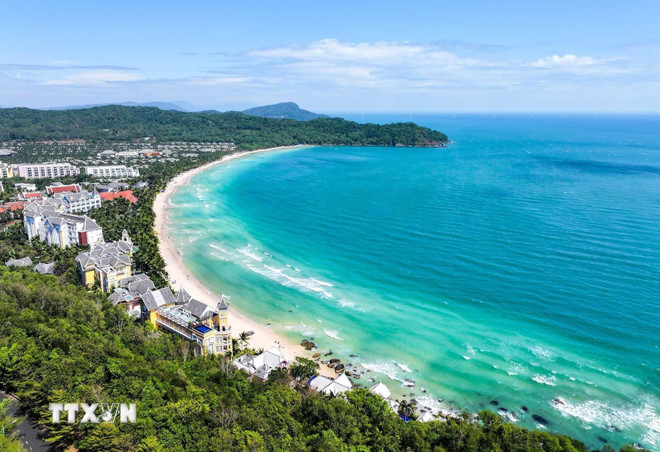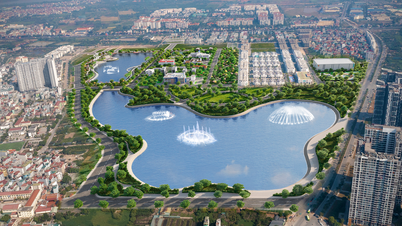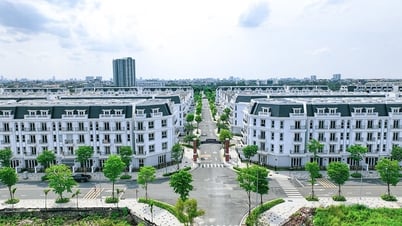Not only does coastal living offer beautiful scenery and a relaxing atmosphere, it can also help people live longer. American scientists have just published evidence that environmental factors in this area play an important role in prolonging life.
A new study by Ohio State University (USA) just published in the Journal of Environmental Research shows that people living near the sea can extend their life expectancy by an average of 1 year compared to the 79-year-old average of the general US population.
However, this benefit does not occur for people living near large rivers or lakes in the city.
Scientists analyzed data from more than 66,000 census tracts across the United States, focusing on average life expectancy and its association with living near different water spaces such as oceans, rivers, and lakes.
Results showed that those who lived within about 30 miles of the coast or the Gulf of Mexico had significantly longer life expectancies.
In contrast, urban residents near rivers and lakes in large cities have a slightly lower life expectancy, averaging only about 78 years.
People living in rural areas near rivers and lakes also enjoy certain benefits, but not as strongly as in coastal areas.
Factors affecting life expectancy
Researchers have offered several explanations. First is climate: coastal areas are generally cooler, with fewer extreme heat days and lower maximum temperatures than inland areas.

The air here is also fresher, with less fine dust and smoke - a factor that has been shown to be directly related to cardiovascular and respiratory health.
Living by the sea also means more opportunities for outdoor activities, such as swimming, boating, surfing, or simply walking on the beach.
The transportation and service infrastructure systems in many coastal cities are well developed, helping people easily access health care and living amenities.
In addition, the average income of coastal residents is often higher, which also contributes to improved quality of life and health.
In contrast, in cities along rivers and large lakes, environmental factors are more complex. Some areas face water and air pollution, the risk of flooding, and a lack of safe space to exercise.
These factors may reduce the health benefits that environments near rivers and lakes are expected to provide.
This difference is a reminder that “not all green spaces or lakes and rivers provide the same benefits,” says study co-author Yanni Cao.
Better health when living near the sea
Interestingly, the study also found that living near the ocean helps to limit the effects of climate change in terms of temperature.
In the United States, coastal areas have an average maximum temperature of about 34.3 degrees Celsius, while areas near inland rivers and lakes have an average temperature of 37.7 degrees Celsius.
This disparity has a significant impact on human health, especially for the elderly, children or people with chronic diseases.
This is the first study in the United States to comprehensively analyze the relationship between different types of green environments and longevity.

Previously, scattered studies have suggested that living near water improves cardiovascular health, increases physical activity levels and reduces obesity rates.
This discovery reinforces that hypothesis, and also shows the difference between “water spaces” such as seas or rivers and lakes.
Of course, not everyone can immediately move to the beach to “buy” a few more years of life. But this study suggests an approach worth considering for urban planners and public health officials, even in Vietnam.
Coastal residential areas such as Nha Trang, Da Nang, Vung Tau, Phu Quoc, etc. can fully exploit the advantages of climate, environment and infrastructure to improve public health. At the same time, urban areas along rivers and lakes - which are common in Vietnam - can also learn from this model by increasing greenery, controlling pollution, creating more safe exercise space and minimizing flood risks./.
Source: https://www.vietnamplus.vn/song-gan-bien-co-the-giup-ban-keo-dai-them-1-nam-tuoi-tho-post1054573.vnp























![[Photo] Prime Minister Pham Minh Chinh attends a special art program called "Hanoi - From the historic autumn of 1945"](https://vphoto.vietnam.vn/thumb/1200x675/vietnam/resource/IMAGE/2025/8/15/c1c42655275c40d1be461fee0fd132f3)
![[Photo] Firmly marching under the military flag: Ready for the big festival](https://vphoto.vietnam.vn/thumb/1200x675/vietnam/resource/IMAGE/2025/8/15/86df2fb3199343e0b16b178d53f841ec)

![[Photo] Binh Khanh Bridge Ho Chi Minh City is ready to reach the finish line](https://vphoto.vietnam.vn/thumb/1200x675/vietnam/resource/IMAGE/2025/8/14/b0dcfb8ba9374bd9bc29f26e6814cee2)


![[Photo] The special solidarity relationship between Vietnam and Cuba](https://vphoto.vietnam.vn/thumb/1200x675/vietnam/resource/IMAGE/2025/8/15/5f06c789ab1647c384ccb78b222ad18e)
![[Photo] Prime Minister Pham Minh Chinh talks on the phone with Cambodian Prime Minister Hun Manet](https://vphoto.vietnam.vn/thumb/1200x675/vietnam/resource/IMAGE/2025/8/15/72d3838db8154bafabdadc0a5165677f)
































![[Photo] President Luong Cuong receives Finnish Ambassador to Vietnam Keijo Norvanto](https://vphoto.vietnam.vn/thumb/402x226/vietnam/resource/IMAGE/2025/8/15/9787f940853c45d39e9d26b6d6827710)




































Comment (0)